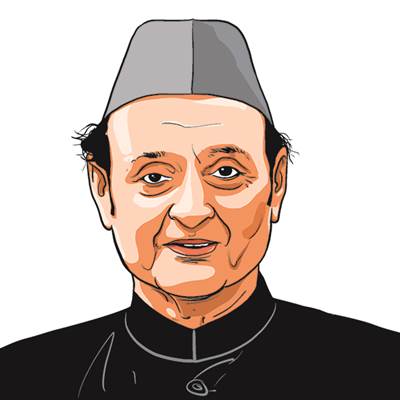Opinion A judgment for India
The 377 judgment is grounded in logic,law and history
The Indian Penal Code insofar as it criminalises consensual sexual acts of adults in private is violative of Article 14,15 and 21 of the Constitution. These words in the Delhi high court judgment of July 1,2009 have stated the situation clearly and unambiguously. Indeed,it is surprising that an outmoded colonial law,introduced during Victorian times,should have remained on our statute book for so many years since Independence. Our former colonial masters motivation for the law was clear: to prevent any physical contact between the young British civil and military officers who came out to administer India and the natives; its equivalent in the United Kingdom was repealed decades ago.
We are perhaps the last liberal-democratic country in the world to have decriminalised gay sex,and now join 126 countries around the world that have already done so. This will come as a long-awaited relief to a particularly vulnerable section of society which,even if we accept claims that it is only 2 per cent of our population against the generally-accepted figure of 10 per cent,would include over 20 million people.
The judgment has sparked off a lively debate; the media,both electronic and print,has been largely supportive. Some points need to be clarified. The judgment in no way propagates gay sex; all it does is to ensure the fundamental right of equality,non-discrimination and personal liberty guaranteed to every Indian citizen under our Constitution. It is also important to note that it does not decriminalise non-consensual sex or paedophilia,which will remain cognisable offence subject to severe punishment.
The argument that some religious leaders are against the judgment cannot become a deciding factor. I recall that,when in the early 50s Pandit Jawaharlal Nehru and B.R. Ambedkar piloted the Hindu Code Bill through Parliament,there were a large number of Hindu leaders including some Shankaracharyas who were strongly opposed to it,as was then-President Rajendra Prasad. Nonetheless,they pushed it through,thereby ensuring that the 800 million Hindus in India today live in a much more equitable and fair society than earlier. Similarly,all Christian denominations are not against gay sex. The Roman Catholic Church certainly is; they also oppose contraception,but that does not mean that we should stop our family welfare and condom distribution programmes. As far as Muslim communities are concerned,conservative leaders might certainly take a rigid attitude but younger people are likely to be less dogmatic. In any case,if one looks at the great Sufi tradition within Islam,we find that they celebrated love,both human and divine,in all its multifaceted glory.
The argument that this is against nature is also not viable. To begin with,for the gay or LGBT community,their particular lifestyle is apparently as natural as heterosexual relationships are to the rest of society. Also this argument of nature can be pushed to extremes. It is not natural,after all,to wear clothes; or to eat cooked food. Nature is much more varied and inclusive than many realise,and alternative sexuality has been found in almost all cultures,ancient and modern,around the world.
It is often forgotten that some of the greatest artists and musicians,rulers and conquerors,philosophers and poets in history have been gay or bisexual. Same-sex love was one of the bases of the ancient Greek civilisation that produced such great thinkers as Socrates,Plato and Aristotle who laid the philosophical foundations of Western civilisation. In India,too,the Kama Sutra clearly mentions same-sex love in a very matter of fact manner,and the Khajuraho sculptures depict it graphically. In our magnificent iconography,the ultimate integration of the masculine and feminine archetypes is found in the great concept of Shiva Ardhanareshwara; in the broader philosophical context,the Vedanta believes that the divine resides in all human beings,in which case discrimination on any basis including sexual preference is unacceptable.
To conclude,therefore,one can say that the historic judgment of the Delhi high court marks a positive step in widening the scope of our inclusive democratic structure,and rescuing millions of citizens from the shadow of an archaic and outmoded colonial legacy.
The writer is a Rajya Sabha MP express@expressindia.com




